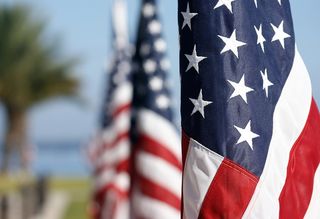While the Veteran is often the focus when discussing Veterans Benefits, we must not forget the range of benefits available to surviving spouses of Veterans. Widows are entitled to an array of benefits, some commonly known and others more obscure. But, for almost every type of benefit discussed, the Veteran must be deceased. During a Veteran’s lifetime, there are no benefits payable to the spouse even though the latter’s existence as well as their medical expenses, income, and assets can positively or negatively impact the benefit for which the Veteran may qualify. For more information from the VA website: http://explore.va.gov/spouses-dependents-survivors.
 Estate and Elder Care Planning attorneys are most familiar with the non-service-connected disability pension for surviving spouses also referred to as “death pension” or “widow’s pension” or “widow’s aid and attendance”. It is not necessary for a Veteran to have already filed a claim with the Veterans Administration or to have been in receipt of non-service-connected disability pension in order for a surviving spouse to file his or her own claim.
Estate and Elder Care Planning attorneys are most familiar with the non-service-connected disability pension for surviving spouses also referred to as “death pension” or “widow’s pension” or “widow’s aid and attendance”. It is not necessary for a Veteran to have already filed a claim with the Veterans Administration or to have been in receipt of non-service-connected disability pension in order for a surviving spouse to file his or her own claim.
Claims Based on the Veterans Disability:
Notwithstanding, there are two particular scenarios that expand benefit options to spouses at the time of the Veteran’s death. First, if the Veteran had filed a fully-developed claim for pension that was still pending, a surviving spouse could file a substitution of claimant form in order to assume the Veteran’s claim. Second, if the Veteran had filed and been approved for pension, but had not yet received the funds, then the surviving spouse may file an accrued benefits claim to receive benefits that were due and payable to the Veteran at the time of his/her death.
The counterpart to the non-service-connected disability pension for surviving spouses when the Veteran has a service-connected disability is called Dependency and Indemnity Compensation (DIC). DIC is for surviving spouses and dependent children of Veterans who were disabled by an injury or illness that was incurred or aggravated during active military service. Claims for death pension, accrued benefits, and DIC are all filed by using the same VA form 21-534EZ. For this reason, the claimant often receives a determination for all three types of claims in the VA award letter even when intending to only apply for death pension. More information regarding DIC can be found at http://explore.va.gov/disability-compensation/spouses-dependents-survivors.
Burial Benefits:
Apart from these monthly benefits, there are one-time flat rate benefits that are available when a Veteran dies. These include a small burial allowance as well as additional allowances for interment and transportation and those amounts vary depending on whether the Veteran’s death was service-connected or not. In most cases, surviving spouses on record are paid the burial allowance automatically once the VA is notified of the Veteran’s death, but a claim must be filed to obtain the additional allowances. See http://explore.va.gov/memorial-benefits for more information regarding these benefits.
20/20/20 Rule:
Finally, the 20/20/20 rule entitles unmarried former spouses of Veterans to medical benefits and commissary and exchange privileges as long as they were married for at least 20 years, the Veteran served at least 20 years creditable in determining eligibility to retired pay, and the marriage overlapped the service period by 20 or more years. A former spouse who meets these requirements is known as a 20/20/20 former spouse. Former spouses may also qualify for the Survivor Benefit Plan (SBP) as long as they are not remarried before the age of 55. In fact, a former spouse may regain eligibility if the remarriage ended before the former spouse turns 55. A former spouse can be designated as a SBP beneficiary by court order or by a voluntary, written agreement with the Veteran. For more information go to http://www.militaryfamily.org/info-resources/marriagedivorce/benefits.html.
If you want to learn more about Lawyers With Purpose and how it can support you in your elder or estate planning practice, join us for our Practice Enhancement Week in St. Louis the 1st – 5th of June. You can check out the full agenda here. And if you have any questions at all, please contact mhall@lawyerswithpurpose.com.
Victoria L. Collier, Veteran of the United States Air Force, 1989-1995 and United States Army Reserves, 2001-2004. Victoria is a Certified Elder Law Attorney through the National Elder Law Foundation, Chair, National Academy of Elder Law Attorney’s VA Task Force, Author of 47 Secret Veterans Benefits for Seniors, Author of Paying for Long Term Care: Financial Help for Wartime Veterans: The VA Aid & Attendance Benefit, Founder of The Elder & Disability Law Firm of Victoria L. Collier, PC, Co-Founder of Lawyers With Purpose, LLC.
Sabrina A. Scott, Paralegal, The Elder & Disability Law Firm of Victoria L. Collier, PC and Production Coordinator for Lawyers for Wartime Veterans, LLC.


